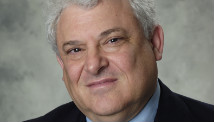Women's advocacy groups in Chicago are urging the Ultimate Fighting Championship organization to prevent a fighter who appeared in a video that made light of rape from fighting Saturday at an event in the United Center.
Sharmili Majmudar, executive director of Rape Victim Advocates in Chicago, said she and other activists came out with a letter of opposition Thursday because Quinton "Rampage" Jackson, the man in the video, is about to fight on Chicago turf.
"It's kind of despicable that anyone would take so lightly the issue of sexual violence," Majmudar said. "This isn't Chicago. This is not something that's consistent with Chicago (values)."
Although UFC officials say they find the video tasteless, they suggest another motivation behind the letter and the news release that accompanied it, said Lawrence Epstein, UFC's chief operating officer.
The letter to the UFC, its sponsors and the Fox television network included an email address for Jen Suh, a research analyst for the Culinary Workers Union in Las Vegas. Its parent union is the national UNITE HERE organization.
Lorenzo Fertitta and Frank Fertitta III are the majority owners of Station Casinos LLC in Las Vegas, and the company has long been at odds with the Culinary Workers Union over the unionization of casino workers. The Fertittas also are the majority owners of the UFC.
"They think if you harass an employer enough, they'll say 'take my workers,'" Epstein said. Suh, when asked for comment, said the union's website contains a list of grievances against the company.
In October, the National Labor Relations Board held that Station Casinos violated federal labor law in 82 cases in its response to union-organizing efforts. But the union and the Fertittas are still a long way from settling their dispute.
The most recent news release on the Culinary Worker Union's website announces that the U.S. Marine Corps did not renew its sponsorship of UFC.
Jackson will "absolutely" fight Saturday, Epstein said. Although the UFC did not punish Jackson for the video, Epstein said its officials made it clear to Jackson and his manager that his behavior was inappropriate.
Also on Thursday, the UFC released a statement about its new code of conduct, which will include punishments such as fines and community service for fighters who violate the code. Matt Hughes, a former UFC fighter who made the organization's Hall of Fame, joined UFC as vice president of athlete development and government relations to help enforce the policy.
Epstein said Jackson's video was tasteless.
The video, with nearly 1,200 views on YouTube as of Thursday evening, shows Jackson instructing viewers on how to "pick up a gurl." Jackson suggests comfortable shoes, chloroform and zip ties. In the video, he stalks a woman in a parking garage and tries to grab her from behind. Before he has the chance, she elbows him in the gut and pulls a gun.
Jackson has said in other interviews that the video was an attempt at humor. He told Ariel Helwani of MMA Fighting in October that he was trying to emulate comedian Dave Chapelle and that he put out the video to get kicked off the UFC roster.
The UFC and Jackson's relationship has been rocky for months. Jackson hasn't fought since February, in Japan, before the video appeared, a UFC spokesperson confirmed. The fight Saturday at the United Center is the last one of his current contract.
ehirst@tribune.com

